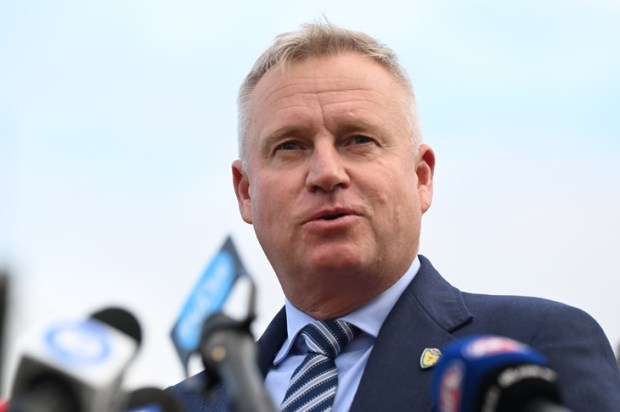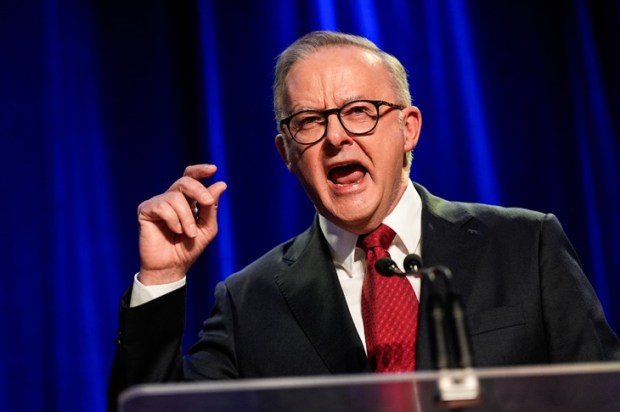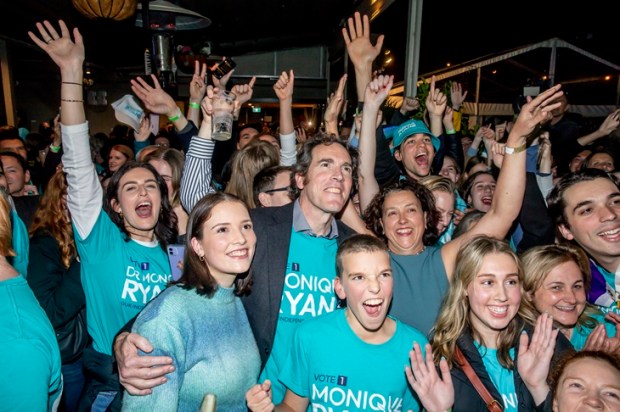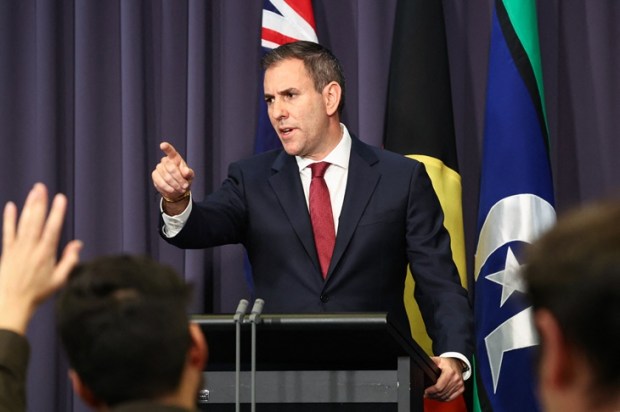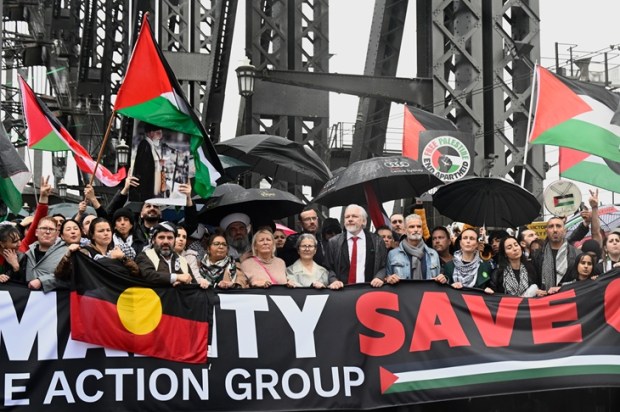As the 2025 election is looming – scheduled to be held sometime before Saturday, May 17 – many people have asked me how I intend to vote.
These questions are part of a well-intended game of curiosity to elicit commentary on the policies and political platforms of the main parties contesting the election. Admittedly, an elector’s voting preference depends on the policies proposed, and the charisma, or lack thereof, of its candidates. In this context, it is truly tragic that neither the Labor Party nor the Opposition Coalition have acknowledged the vital importance of free speech, which is a necessary condition for the achievement of all worthy economic goals.
As expected, the main parties focus on economic issues during this election campaign. The electorate has been led to believe – sometimes reinforced by the ubiquitous opinion polls and focus groups – that these issues include the current cost-of-living crisis, trade issues and the tariffs stand-off with the United States, the housing crisis, immigration, aged care and childcare, education, health, communication, transportation, flood mitigation, defence – the list is daunting. In their campaign speeches, the parties’ leaders constantly announce generous support for their economic pet projects, which they believe will appeal to, and appease, the electorate and have maximum impact on how the electorate will vote.
Of course, politicians’ obsession with economic issues reminds us of that emblematic statement of James Carville, advisor to President Clinton, who said, ‘It’s the economy, stupid.’
Even so, strong economic management may not suffice to clinch victory on election day and, hence, the government has promised extravagant expenditure. Some suggest the profligate promises made by Labor since the start of this year already amount to $35 billion. A witless Opposition usually matches the government’s promised expenditure and, occasionally, it even undertakes to outspend Labor. These promises are often poorly costed and will only fuel inflation, not reduce it, and consequently exacerbate the cost-of-living crisis. In this context, Philippe Jaquenod opines in his recently published book, Emotional Manipulation: An Assault on Our Democracy, that what matters now to governments is ‘what they give to the people, or better still, what the people perceive they are given, not economic performance’. The aphorism, ‘What you get from Canberra is what you send to Canberra less freight both ways…’ should be stamped on every advertised political promise.
Regarding trade, President Trump’s decision to impose a tariff of 25 per cent on the importation of aluminium, and to introduce reciprocal tariffs figure prominently in the campaign. Of course, both the United States and Australia know that one of the few immutable laws of economics is that, in a tariff war, both countries lose. In 1624, John Donne wrote: ‘No man is an island…’ and neither is any country. Around 1846, Britain dropped ‘protective’ taxes on most imported products and reformed the Navigation Acts to allow foreign vessels to compete with British merchant ships. Consequently, foreign-produced food became available at affordable prices and Britain thrived to become Great Britain. This story evidences the validity of Donne’s point, implied in his aphorism, that tariffs will inevitably harm both the exporting and importing country. However, the ‘reciprocal tariffs’ embraced by President Trump merely purport to equalise trading conditions, the purpose of which is to extend, not diminish, trade among nations and to ensure greater fairness and sustainability in international trade. This big stick approach using one heavy-handed economic lever ignores the economic advantage enjoyed by low-tax countries over countries burdened by high and complex taxes that smother productivity and the motivation that comes from working for oneself rather than for the government.
Yet, the main parties overlook an important electoral issue: that free speech is a condictio sine qua non for maintaining a healthy economy and facilitates free trade. Thus far, ‘free speech’ issues have not figured prominently in the Liberal Party election campaign even though it is one of its founding principles. Indeed, the former Prime Minister, Scott Morrison, who irreverently stated that free speech ‘doesn’t create one job, doesn’t open one business, doesn’t give anyone one extra hour. It doesn’t make housing more affordable or energy more affordable’ is suggestive of the disregard accorded this basic liberal principle.
The Coalition has a chequered report card on free speech. It waited an exceedingly long time before it committed itself to opposing the Voice to Parliament which arguably would have had the effect of silencing any criticism of the Indigenous industry. Although the Liberal Party courageously opposed the Misinformation and Disinformation bill, which would have imposed an obligation on the social media to police ‘misinformation’ and ‘disinformation’, it joined the government in denying access by under 16-year-old people to the social media, apparently to protect them against the vices that young people might encounter. This legislation is fundamentally flawed because it stereotypes all young people as impressionable; it deprives students of a valuable educational tool, and it demeans the efforts of parents to guide their children’s social media behaviour. But most disturbingly, the Coalition Opposition agreed to support the recently adopted hate speech legislation which will dramatically impact on free speech. Specifically, the Criminal Code Amendment (Hate Crimes) Act 2025 criminalises advocacy of ‘hateful ideas’ deemed to be ‘unacceptable’ and which ‘will be subject to serious criminal penalties’. The Liberals also established the eSafety Commissioner – well-known for selective censoring. The Coalition also failed to remove the infamous section 18C from the Racial Discrimination Act which criminalises any comments which listeners deem to be ‘offensive’. I would be very surprised if the party, even if elected, were to take a stand against the participation of transgender males in female sporting competitions, even if the evidence suggests that it distorts fairness in sports and promotes a contorted understanding of ‘equality’ which defies both biological facts and common sense.
At the state level, we have the ham-fisted bans on promoting conversion practices; there is legislation that bans people from praying within a certain radius of an abortion clinic, and it outlaws hateful symbols and salutes. People have been sued merely for commenting on the participation of biological males in female soccer matches. In Australia, there is an unending list of practices which offend the basic principle of free speech.
President Donald Trump confidently stated in his State of the Union address, after just 43 days in office, that he has restored free speech in the United States. Consistent with Trump’s approach, I fervently hope that our political representatives will reclaim free speech to facilitate the adoption of common-sense policies in Australia. Put simply, it is an essential election issue – without free speech, the discussion on the other election issues, mentioned above, becomes meaningless.
Hopefully, the reader’s understanding of my argument is enlightening: I have grave doubts that the Opposition Coalition, if it were to form government after the election, would have the courage to restore free speech to its rightful place in Australia, For instance, in my opinion, there is no guarantee that a Coalition government would do anything to combat the diversity, equity, and inclusiveness (DEI) pandemic in our institutions. Indeed, what has the Opposition done for conservatives who want to re-institute free speech? Truly little! This is a critical issue because without free speech, any discussion of the issues mentioned above would be distorted, artificial, and challenging. However, if there were free speech, a person would not have to be afraid of being sued for stating the obvious or be afraid of repercussions if they were to contest the detail of zero emissions fantasy claims.
Free speech would lead to a testing of all ideas in the free marketplace of ideas, which is what a democracy really needs. As it now stands, Australia is merely a ‘planned democracy’ because it severely curtails freedom of speech and muzzles the views of Australians in the name of conformity and adherence to the preferred views of the elites.


